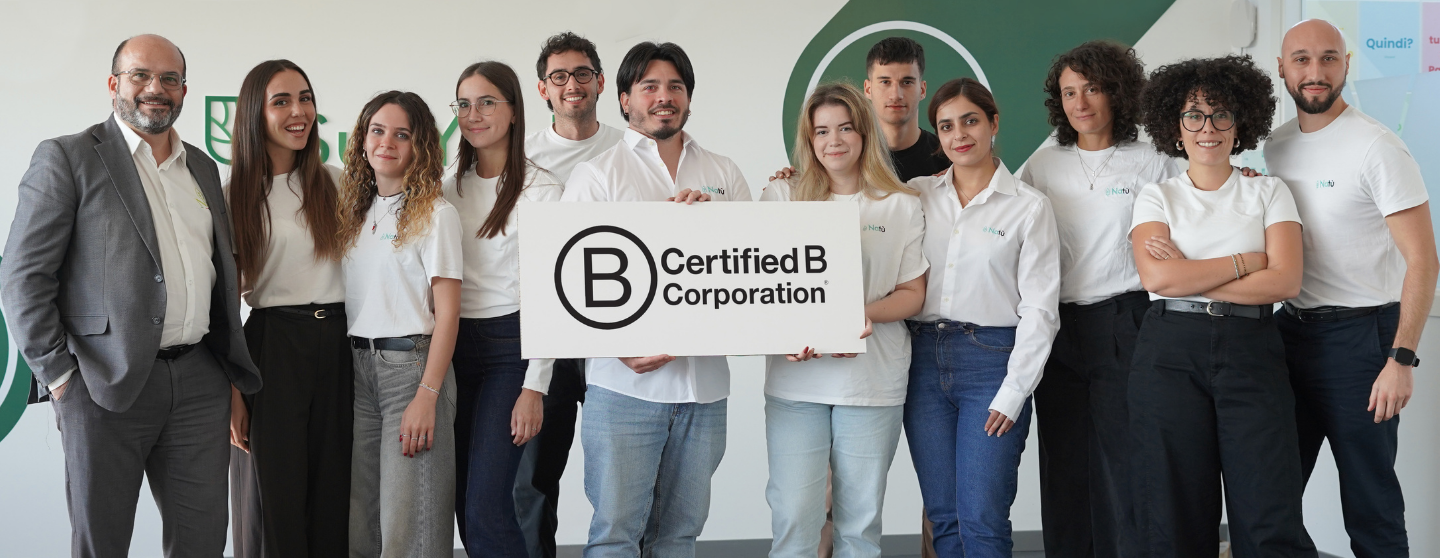

Natù ESG

1.6
Emilia-Romagna, Italy
August 2025
Environmental consulting
Service with Minor Environmental Footprint
Italy
Natù ESG supporta le imprese nella transizione verso modelli di business sostenibili, combinando competenze tecniche, innovazione digitale e impatto ambientale positivo. Nata da un’esperienza pluriennale nei progetti di riforestazione, oggi l’azienda offre una gamma integrata di soluzioni per la rendicontazione ESG e la strategia ambientale. L’attività si sviluppa su tre direttrici principali: consulenza ESG (bilanci di sostenibilità, certificazioni ISO ed LCA), tecnologia per la sostenibilità (software SuitYou! per la rendicontazione di sostenibilità) e progetti di riforestazione ad alto impatto sociale. Crediamo che ogni impresa, indipendentemente dalla dimensione, debba avere accesso a strumenti e competenze per contribuire allo sviluppo sostenibile. Per questo lavoriamo con PMI e grandi realtà, offrendo soluzioni scalabili, trasparenti e concrete
Overall B Impact Score
Governance 21.8
Governance evaluates a company's overall mission, engagement around its social/environmental impact, ethics, and transparency. This section also evaluates the ability of a company to protect their mission and formally consider stakeholders in decision making through their corporate structure (e.g. benefit corporation) or corporate governing documents.
What is this? A company with an Impact Business Model is intentionally designed to create a specific positive outcome for one of its stakeholders - such as workers, community, environment, or customers.
Workers 32.7
Workers evaluates a company’s contributions to its employees’ financial security, health & safety, wellness, career development, and engagement & satisfaction. In addition, this section recognizes business models designed to benefit workers, such as companies that are at least 40% owned by non-executive employees and those that have workforce development programs to support individuals with barriers to employment.
Community 23.9
Community evaluates a company’s engagement with and impact on the communities in which it operates, hires from, and sources from. Topics include diversity, equity & inclusion, economic impact, civic engagement, charitable giving, and supply chain management. In addition, this section recognizes business models that are designed to address specific community-oriented problems, such as poverty alleviation through fair trade sourcing or distribution via microenterprises, producer cooperative models, locally focused economic development, and formal charitable giving commitments.
What is this? A company with an Impact Business Model is intentionally designed to create a specific positive outcome for one of its stakeholders - such as workers, community, environment, or customers.
Environment 14.2
Environment evaluates a company’s overall environmental management practices as well as its impact on the air, climate, water, land, and biodiversity. This includes the direct impact of a company’s operations and, when applicable its supply chain and distribution channels. This section also recognizes companies with environmentally innovative production processes and those that sell products or services that have a positive environmental impact. Some examples might include products and services that create renewable energy, reduce consumption or waste, conserve land or wildlife, provide less toxic alternatives to the market, or educate people about environmental problems.
What is this? A company with an Impact Business Model is intentionally designed to create a specific positive outcome for one of its stakeholders - such as workers, community, environment, or customers.
Customers 3.2
Customers evaluates a company’s stewardship of its customers through the quality of its products and services, ethical marketing, data privacy and security, and feedback channels. In addition, this section recognizes products or services that are designed to address a particular social problem for or through its customers, such as health or educational products, arts & media products, serving underserved customers/clients, and services that improve the social impact of other businesses or organizations.